
The Best Music of 2020
I think we can all admit that 2020 wasn’t exactly a banner year, unless you’re into hanging hideously awful, “Mission Accomplished” style banners that are immediately met with disdain and will be remembered for generations for sucking total shit! Yes, this year provided mountains of evidence that humanity has jumped the shark, like how the term dumpster fire was a sad, played out meme years before it would have felt right. Nevertheless, musicians soldiered on, doing what they do and providing us all with the briefest of respites from staring at our phones, our walls or each other. And while the runaway winner of “Worst Year of Our Collective Lives”® prevented us from seeing our favorite acts in a live setting where we could enjoy dancing, screaming along to the lyrics and coughing directly in each others mouths (which in retrospect I maybe shouldn’t have been doing at concerts all along), these albums allow us to transcend the gloomy present and offer hope that when this nightmare is over, we won’t miss a beat in getting back to some sense of normal. Here’s to coughing into each other’s mouths at a live show in 2021! Sorry, old habits die hard.
– Ed Coleman, curator
– Listen to our Best Albums of 2020 playlist on Spotify –
It Is What It Is, by Thundercat
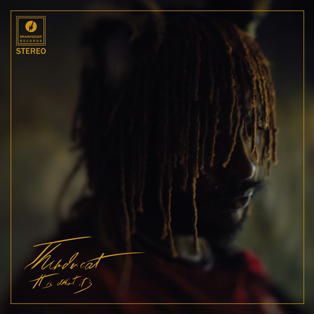
Thundercat’s fourth album is one that you should hear uninterrupted. Original takes on R&B, electronica, jazz, soul and funk follow each other in rapid succession and each new track perfectly follows the last. The single and video “Dragonball Durag” brought me my first out-loud laughs of the quarantine, and I love so much that one of the R&B masterpieces of my generation is about a guy finding a Dragon Ball Z durag in the trash and insisting on wearing it all the time. Three early tracks are a sandwich of optimism with a queasy, cautious center. Putting on “I Love Louis Cole,” “Black Qualls,” and “Miguel’s Happy Dance” together was something I did over fifty times this year. After the humorous, romantic heights of “Durag” the album settles into a quiet, sad beauty and finishes with the title track, a song that sounds like you would feel while watching the universe disappear.
– 2Mello
color theory, by Soccer Mommy
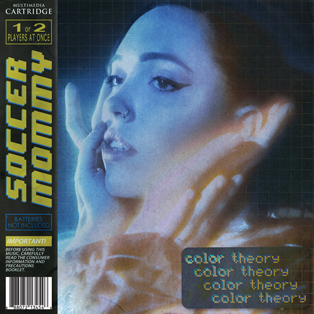
To say that Soccer Mommy’s album Clean was the soundtrack of my year in 2018 would be an understatement. Clean felt like an encapsulation of feelings swirling inside me for years. In Soccer Mommy’s sophomore LP, color theory, lead singer Sophie Allison attempts to map out her growing up with depression and loss through a conceptual three-piece composition separated by colors: blue, yellow and grey.
Despite the dark subject matter, the album doesn’t sound all doom and gloom. Channeling the likes of Sheryl Crow’s “Soak Up the Sun,” Allison produced one of the most surprising and infectious pop songs of the year with “circle the drain.” I appreciate her willingness to lean into the ambiguities of mental illness with lines like, “Things feel that low sometimes / Even when everything is fine.”
Instead of beating the listener over the head with revelations, Allison realizes the importance of acknowledging that most of the time there aren’t clean answers to dealing with all the noise circling around in our heads.
– Phillip Russell
What’s Your Pleasure?, by Jessie Ware
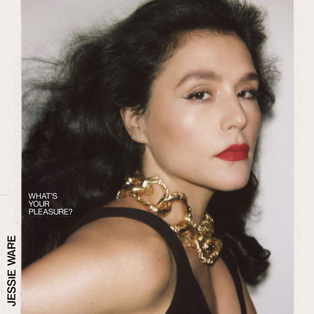
The first time I heard Jessie Ware was almost a decade ago, as the featured vocalist on dubstep producer Joker’s “The Vision,” a track that seems designed to be played as loud as possible on the biggest speakers available. Following her career with that context has always been rewarding but somewhat surprising, as Ware used her first three solo albums to experiment in pop and R&B songwriting, mostly with a mellower sound palette.
On What’s Your Pleasure?, Ware returns to making club music, but this time it’s in the form of an hour of disco. The result is as expressive and personal as the best of Ware’s previous work while bringing an entirely fresh energy to it. Ware focuses exclusively on exploring all of the possibilities this sound provides, in the process crafting her boldest and best musical experience yet.
– Adam Boffa
The Fallen Crimson, by Envy
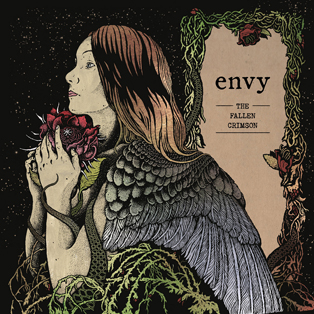
Envy has no peers and nothing left to prove. After nearly three decades in existence, the closest thing they have to real contemporaries are all the bands they’ve inspired, from the noisier side of the screamo underground to the shoegaze-influenced black metal movement spearheaded by the likes of Deafheaven. Back with their seventh studio album, The Fallen Crimson, it feels like the band has a new lease on life. When the only expectations you need to exceed are the ones you set yourself, you’re free to do exactly what you want, and that sense of liberation shines through in each glistening lead line and breathless riff. This is Envy firing on all cylinders in every direction, synthesizing elements of everything from blackened crust to delicate post-rock in a way few other acts would dare attempt, let alone pull off with a masterful touch.
New guitarists Tsuyoshi Yoshitake (Killie) and Yoshimitsu Taki (9mm Parabellum Bullet) and drummer Hiroki Watanabe (Heaven in Her Arms) have expanded the band’s tonal palette, building on top of their well-established sonic foundation while shifting seamlessly from ambiently melodious (“Eternal Memories and Reincarnation”) to bluntly aggressive (“Statement of Freedom,” “Fingerprint Mark”) and often doing both at the same time (“Memories and the Limit,” “Dawn and Gaze”). Primary songwriter and founding guitarist Nobukata Kawai’s exploration of the vocoder pedal adds new texture to the proceedings, a holdover from his attempt to fill the void left behind when vocalist Tetsuya Fukagawa departed in 2016 (and subsequently returned a couple years later).
It’s somehow fitting that, following a stretch of inner turmoil that led to lineup changes, Envy would come back with the most triumphant record of their career. The pandemic may have prevented the international tour dates promised when the record released in February, but rest assured, this is neither a swan-song nor an attempt to recapture former glory. The Fallen Crimson is a clear statement of creative intent amid a long creative evolution from a band operating at the height of their powers. It’s like they never left.
– Ben Sailer
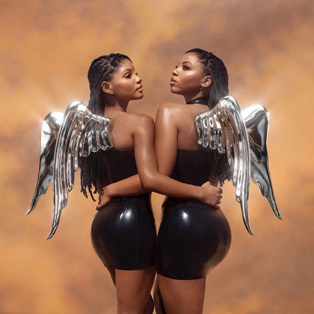 Ungodly Hour, by Chloe x Halle
Ungodly Hour, by Chloe x Halle
Chloe x Halle’s Ungodly Hour is 37 minutes of shimmering R&B that blends trap, hip-hop and future bass sounds into a cohesive whole. It helps that Chloe either solo-produced or had a hand in producing most of the tracks; her ear for weirdo flourishes (detuned guitars, fuzzy, playful bass) and the duo’s intricate harmonizing loads every song with vibes. Their on-point live performances throughout quarantine (see: the GLAAD Awards or their NPR Tiny Desk concert) only reaffirmed why Ungodly Hour comes with the Béyonce co-sign: Chloe x Halle owned pop in 2020.
– Astrid Rose
Industry Games, by Chika

One of XXL’s class of 2020, Chika released her first EP, Industry Games, in March and it’s brilliant. Each song feels completely different, from the trap beats of the titular “Industry Games,” to the melodies of “On My Way,” there’s a real versatility being shown in this record. She’s also a phenomenal lyricist. It doesn’t feel like a word is wasted and everything has meaning. As she fluidly synchronizes her bars and the beats, you can really feel the influence from the likes of Lauryn Hill and Jean Grae.
Everything about this EP feels unapologetic, she’s owning her Blackness, Queerness and Womanhood, refusing to play the industry games and being herself. The energy she gives here is inspiring. It’s a fantastic introduction to Chika, staking the claim to her crown – and encouraging you to claim yours as well.
– Oluwatayo Adewole
May Our Chambers Be Full, by Emma Ruth Rundle & Thou
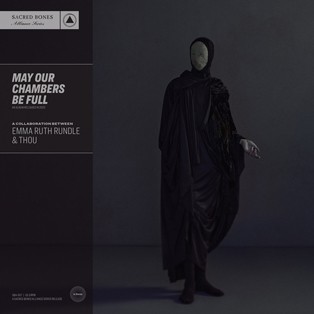
My LP of May Our Chambers Be Full has been stuck in New Jersey since the beginning of December. I mean, I have a digital copy and that’s my primary pathway for tunes these days, but I’m still sick enough to crave that ink-on-heavy-stock smell and to gaze over something that doesn’t glow in my face for a spell. But this isn’t coming any time soon, not to slander the hardworking folks of the USPS, which is par for the nature of our current world. It’s just a kind of hopelessness, staring down that tracking number for nigh on three weeks now.
Metal is often relegated to the soundtrack of hopelessness, but that doesn’t have to be inherent to the timbre of the music. More than a few releases make this argument in 2020, including others on my list like SUMAC’s, May You Be Held. And of them, this collaborative record between doom-folk master Emma Ruth Rundle and the molten-tuned harbingers of nirvana, Thou, holds high a bright light. Truly collaborative, the too-brief album (soon to be joined with a bonus EP) multiplies the strengths of both artists, with Thou’s telltale howls lifting both Rundle’s ethereal calls as well as some strong mic time from the other members of Thou.
Their mutual love of the grimiest alternative rock plays through each riff, squeal, and rumble, but this juiced Voltron masters their dark purple tones specifically in order to hit hard with the balletic twists towards major keys and away again. Each song roils through the heavy turbulence of life but they don’t wallow. This might be a thin case for the metal-averse in the Unwinnable Slack, but I beg their and your attention – May Our Chambers Be Full is a record that intensifies the hopefulness they’re conveying precisely because they come from down in a hole to break out towards the stars. It’s not pure despair to me, but enlightenment through struggle. With any luck, we’ll come through 2020 with similar strength, our records de livered.
– Levi Rubeck
Nectar, by Joji

When I agreed to blurb Joji’s Nectar for the best of the year list, it kind of slipped my mind that I had already written this up for my column a couple months ago. I don’t care, though, because I’ll take any opportunity I can get to talk about how much I love this album. With synth-heavy rhythms, rumbling bass lines and catchy but melancholic hooks, Joji continues to entrance me with his ethereal pop. Three months after its release, Nectar continues to get regular rotation from me and I keep finding new things to like about it. Songs that I had overlooked become new favorites and I wake up with new earworms noodling around my skull.
If I had to have a criticism of the album, I tend to think he could have let the songs breathe a little more. A lot of the tracks cut short before the three minute mark and none make it over four, but even so, I’m not really a fan of the prog-rock 15-minute track thing. I like short and sweet and Joji keeps it tight. I just wish I had more to listen to on a lot of the tracks because they keep jingling around in my head for days, weeks, and months after my first listen. If you haven’t given this a shot yet, I can’t recommend it enough.
– Noah Springer
Punisher, by Phoebe Bridgers
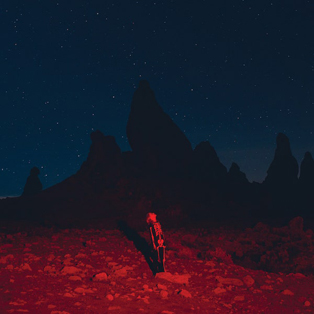
Punisher is an album on, and of, ends. Listening feels like falling into Bridgers’ depths, into something too dark and crowded to be called a void, as she asks you to empathize with the laughter of her own drowning. Yet even the most terrified cries never drift into sorrow and solipsism. Instead, she resurfaces with lyrical visions of the self and others in plain sight. Traces of Bridgers’ time alongside Oberst appear in elegiac lyrics to match the haunting prosody and unrooted melodies of her past works. Choruses merely echo one another, drawing out more meaningful rhymes as the stability of past and present is cast in doubt. We can only really know the end, and it is not with a whimper nor a bang that we embrace this overwhelming sense of loss, but with each other.
– Autumn Wright
Album of the Year: Fetch the Bolt Cutters, by Fiona Apple
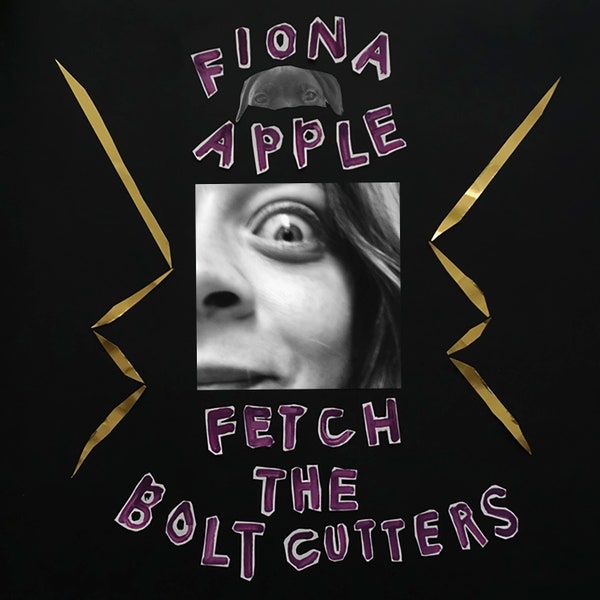
This year needed lively work. Fiona Apple’s Fetch the Bolt Cutters delivers. It’s full of Apple’s experimentation with instrumentation, time signatures, unmetered lyrics and swirling, bending, soaring vocals. Fetch the Bolt Cutters is propulsive, but it isn’t a sprint. It’s a true album, with its own rhythms going track by track, speeding along and then slowing down with ambient and minimal sounds. Sometimes there’s room to stretch out, and sometimes there’s an overwhelming, accelerating, tightening vortex. That’s the kind of liveliness that the album possesses – a volcanic, roller coaster interpretation of the everyday.
That richness saturates the album. It’s the product of instrumentation that ranges from piano to stomps and handclaps, double bass, light guitar with the occasional bit of amplification, and found objects turned percussion instruments. The way these were recorded and produced make me feel like I’m in Apple’s living room, attic, kitchen, backyard. I can hear the sound of feet on the floor, guests coming over, dogs play-fighting outside. And I can hear conversation, real talk, by turns joking, growling, yowling about frustrations, memories, relationships. I can’t wait to have all that back.
– Don Everhart




